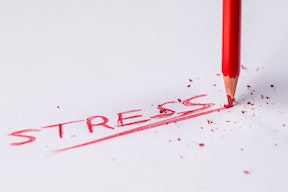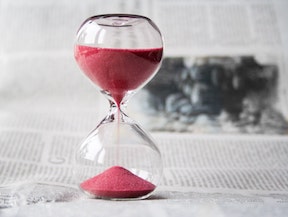It’s no secret that kids complicate life’s struggles. Even little tasks become extraordinarily complicated with a little one by your side. Especially when you’re a new parent, it can be hard not to wear yourself out. Too many people continue doing the same daily activities they did before they had children. Combine that with the workload from their jobs, caring for the children, and household tasks, and you’ve created an ideal environment for mental and physical exhaustion.
Stretched too thin

Many people don’t think about it til it happens, but it’s really easy to burn out after having children. It can be dangerous and it’s not easy to recover from. People forget to take care of themselves while taking care of others.
There’s a book entitled “Peak Performance”, by Brad Stulberg and Steve Magness. The book’s main goal is to get readers performing at their highest levels by focusing on factors that affect performance, like your stress, rest, focus, and purpose. There’s a formula within it that applies to almost everything we do in our daily life. It’s particularly applicable to parenting.
Stress + Rest = Growth

The formula is “Stress + Rest = Growth”. In athletics, if you want to experience muscle growth and higher performance, you must stress your body. But to experience growth, you must rest. Rest is when the body (and mind) rebuild and repair themselves. Without a period of rest, the body does not recover from the stress, and there’s no growth.
It’s crucial to have both if you want to experience growth, and see progress.
This formula has roots in athletics, but it’s applicable to spiritual or mental growth, career-related growth, or anything in life that you want to do better.
Parenting is a marathon, not a sprint.

Parent life is full of stress. If you want to improve your stress tolerance, patience, and mental stamina, you need to pair that stress with rest. No, it’s not easy to do. My mind would chatter constantly, reminding me of the things I’d left undone. Aside from the baby, other responsibilities will draw your attention.
Incorporating some physical and mental rest into the day will make tasks easier to accomplish.
Your child needs you refreshed and ready. If your exhaustion affects you mood, chances are it will effect your kids in one way or another. Babies are especially sensitive to emotions.
Science has shown that sleep deprivation affects judgement and efficiency. It’ll seem like everything is getting done and you’re handling it. But the sad truth is your performance will suffer whether you see it or not.
I thought I was handling parent life just fine, but I was an exhausted mess. I’ve thrown clothes in the kitchen garbage can, thinking it was the laundry hamper. I’ve had household accidents that I refuse to talk about. Especially that first year of their life, being a parent is exhausting. It gets better though.
What do I do?
Rather than putting off everything and stressing about it, give yourself scheduled blocks of time where you can focus solely on accomplishing things. Focused effort and intervals of activity with slower periods in-between will allow you to have more endurance for the long run.
This is similar to another athletic concept, high-intensity interval training (HIIT is when you alternate intense periods of cardio with periods of rest.) Doing this I found it easier to accomplish tasks, while still resting enough to prevent burnout.
When my brain would start reminding me of my responsibilities, I would feel guilt. But I generally had a small block of time in the morning and one in the afternoon. I used to-do list and calendar apps as reminders. I wrote the task down and set an alarm. I would complete the task as soon as I had the opportunity, focusing on nothing else.
Measure time in moments, not hours

As a parent, there are no more hours of free time. You get moments. Use your moments wisely! Peaceful moments combined with slower periods with your little one are your most frequent periods of rest.
Here are a few small ways you can use to enjoy those scarce moments of peace:
- Find little ways to unwind whenever possible. Naptime is great for this.
- Your rest period doesn’t mean you have to sit on the couch and do nothing. Incorporate your little one into it. Read together, play with toys on the floor, goof around. Anything slow-paced. Bonding with your child can be just as relaxing as a nap.
- Alternate with your partner (if possible). Let them rest when they can, and you do the same when they can take charge for a little while.
- Do some deep breathing or another form of meditation in those brief quiet moments.
- Have something special to look forward to. Your favorite beer after a hectic day is even more enjoyable and appreciated. Something as simple as a favorite candy, or snack makes the peaceful moments just a little more refreshing.
- If you don’t have a partner to take over temporarily, ask a family member to watch the kids once in a while. Do something you can’t do when they’re with you.
I know these seem like simple things, and they are. But they make a difference. Some people think they’ve “got it” and they can do everything like nothing has changed. They believe they’re different and won’t burnout. They end up physically and mentally drained. To grow muscle, you need rest. The same goes for parenting.
I love naptime for this reason. You can take a breath, get something to eat, and rest for a bit. After my daughter’s birth, I was exhausted. I chose to nap with her whenever possible. They were certainly the most refreshing and most needed.
It’s tempting to push through and ignore how tired you are. Don’t. I still struggle with this. I tell myself I need to write, clean this, or prepare for something minor. I’ve gotten to the point where I can catch myself trying to do too much, and I remind myself to relax. I’ll watch something dumb for 15 minutes, have a snack and go to bed. After doing that, I’m more patient and have better stamina for the next day.
Try it for a few days, and see how you feel and function. In the toughest times with your offspring, you’ll be glad to take the extra time for yourself. Especially once they start walking and talking. Stay strong, and stay rested.

Andrew Karpisz is a freelance writer and proud stay-at-home dad. When he’s not writing or researching, he is most likely running around and being silly with his 2-year-old daughter, Kara. He can be reached at https://andrewak.com , or on social media (FB & Twitter: @TheAndrewAK).

